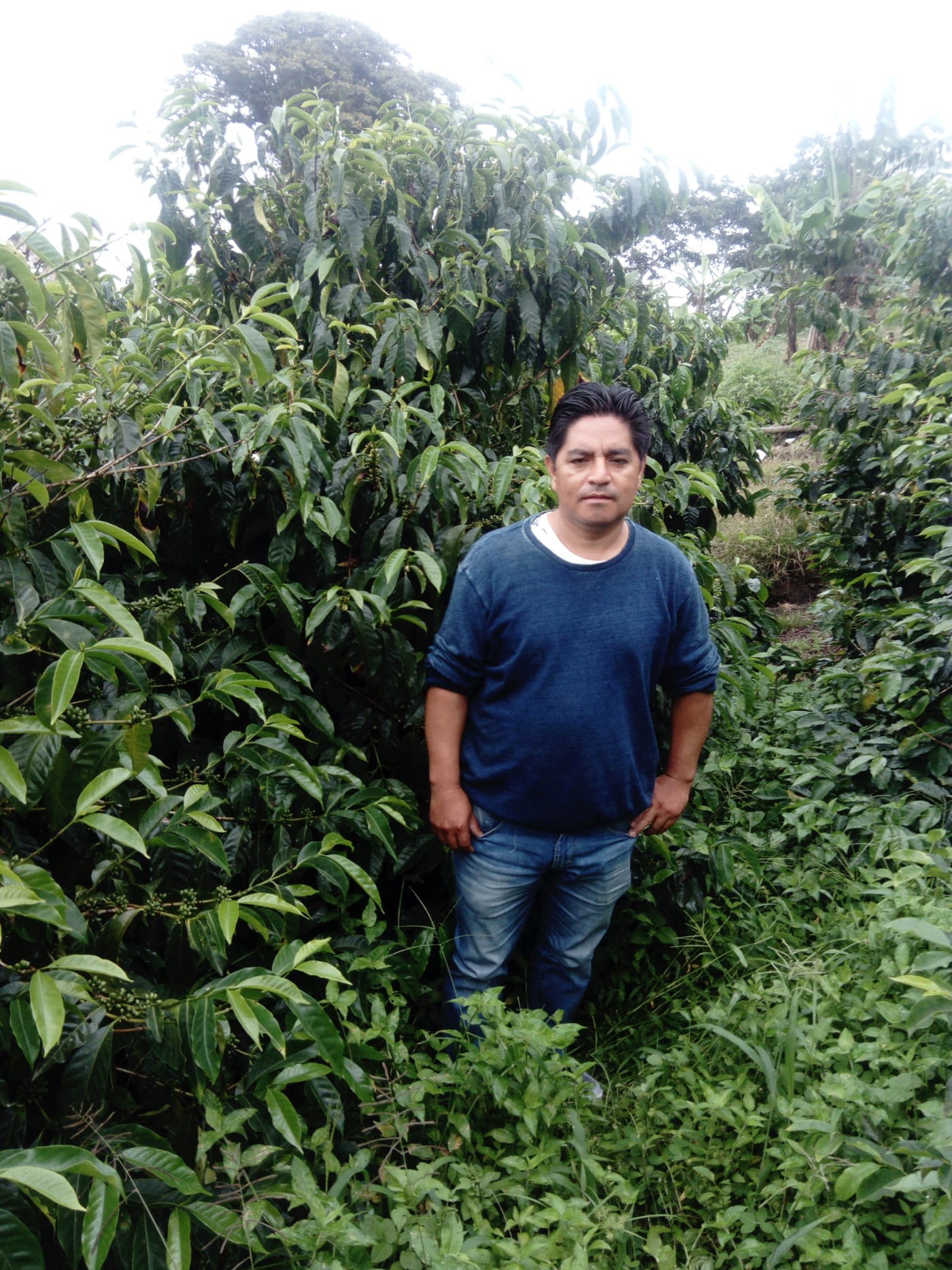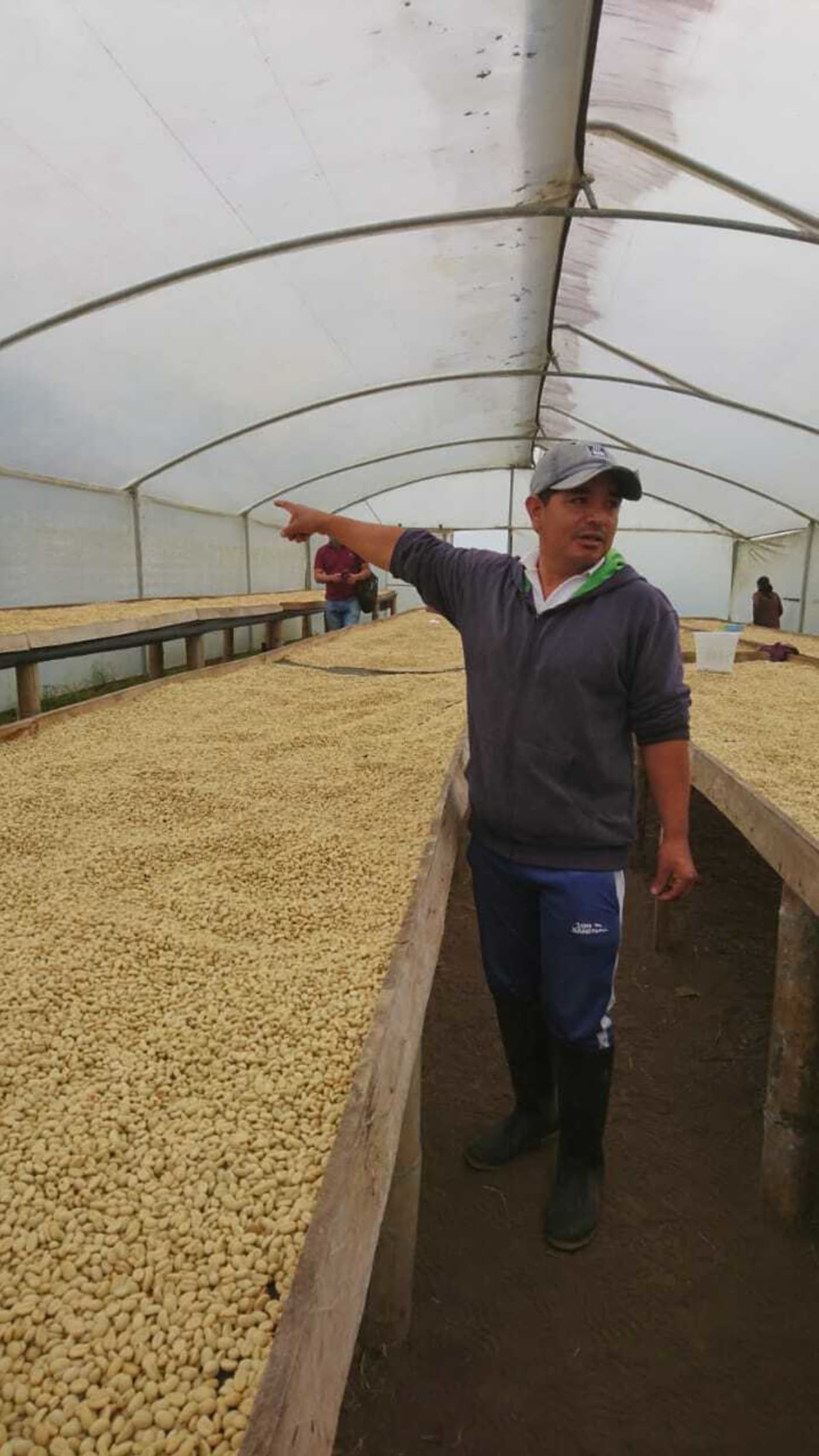Wilter Guillermo, from Finca La Colina, repeats as a VS feature with this lot of washed Typica.
VERY SPECIAL
You may remember La Colina‘s previous feature—a lovely washed Sidra shared in March 2023. Well, this lot has grown in the same area, been picked by the same team and processed using the same methods. The different variable here is the varietal: Typica.
Aside from the varietal uniqueness, the lot’s high price, and the outstanding cup presence, this delivery will test our memory skills. Can you remember how the Sidra made you feel? How does this compare?

ECUADOR: IT’S COMPLICATED
As we mention in the previous La Colina feature, the price of Ecuadorian specialty coffee is generally very high due to the massive influence of the commercial instant industry. Catch up or re-read the whole story in our previous coffee from Finca La Colina.
WILTER GUILLERMO’S GIG
Like everyone here, Guillermo’s days start with a cup of coffee; he loves drinking it. Unlike everyone here, Guillermo decided to transform this passion into his profession, and even though he had no experience, he started his own coffee farm—Finca La Colina.
In 2014, he planted the first coffee trees. Even though he didn’t know much, the first harvest went relatively well; he made mistakes, and he learnt from them, but he also had many wins. It was all personal growth and self-learning, a dream come true.
In 2016, he produced a decent output: 540 kilograms of high-quality dry parchment that entered the specialty coffee market and, later that year, achieved 5th place in the Taza Dorada competition. Not bad for a beginner.

TYPICA VARIETAL
Typica is rare to see these days. It’s not because it’s a new variety—its origins can be traced back to sometime in the 15th or 16th century when it was taken to Yemen, then India, Java, Netherlands, Paris… and finally, Central America.
Until the 1940s, most coffee plantations in South and Central America were planted with Typica, but due to its low yield and high susceptibility to major coffee diseases, it has gradually been replaced with other varieties. Today, it’s still mainly planted in the Dominican Republic, Jamaica (where it is called Jamaica Blue Mountain)and Peru because it still offers a good or high-quality cup.
Learn more about the long travels of Typica at the World Coffee Research page, from which we’ve sourced this information.
THIS LOT’S PROCESS
The cherries have grown at a relatively low altitude (~1370 masl) under partial shade provided by Guamo and Plantain trees. After being picked completely ripe, they’ve been fully washed and fermented for 14 hours, then dried on raised beds in a covered patio.

All the images and information about this coffee and its producers have been kindly shared by the importer, Caravela, and edited by us, Sample Coffee (unless linked to or credited otherwise).
Resting your beans inside the sealed bag helps develop peak flavours and acidity.
Learn how long and why you should wait on our brewing window recommendations guide.
Try our step-by-step recipes and videos.
Our recipes are easy to follow and designed to bring the best out of our coffee. Find your favourite method on our brew guides collection or test a new one—and if you have any questions, ask us anytime at [email protected].






